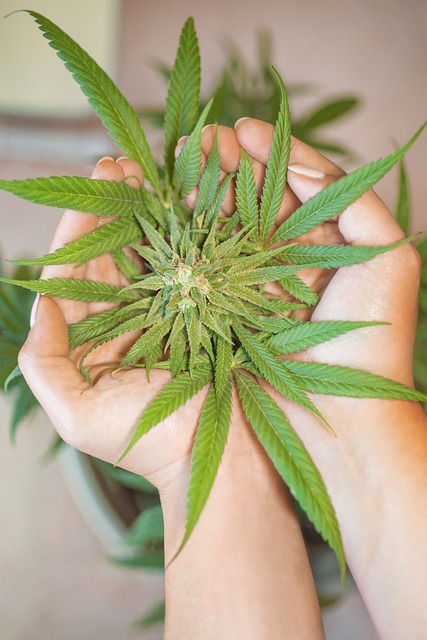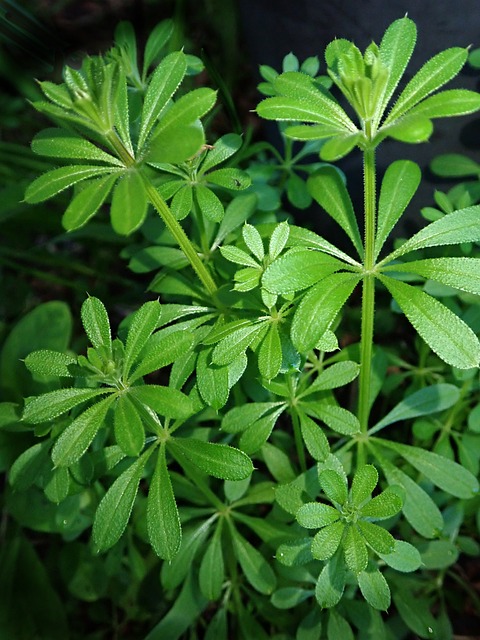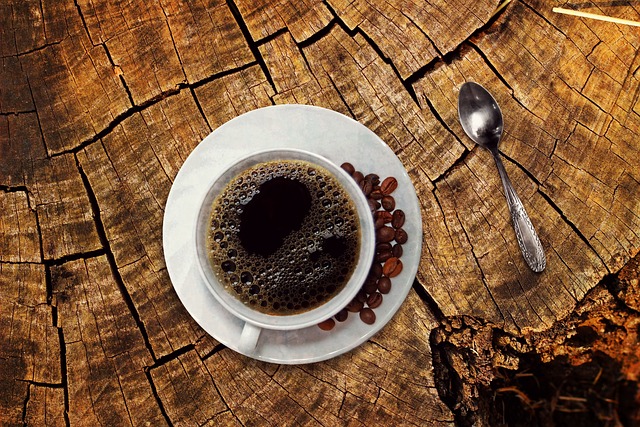
THCA and CBD, non-psychoactive cannabinoids found in cannabis, are gaining attention for their potential benefits in improving sleep quality. THCA, the precursor to THC, exhibits sedative qualities that may directly engage with CB1 receptors, offering a potential avenue for managing sleep disturbances like insomnia without intoxication. CBD, while not necessarily causing drowsiness, can aid sleep by reducing anxiety and stress, as well as providing analgesic effects. Both compounds have unique mechanisms: THCA's more direct sedative impact contrasts with CBD's indirect influence on sleep quality. The comparison between THCA vs CBD for sleep is an active area of research, exploring these natural alternatives' efficacy in a therapeutic context. As personal physiology and proper dosing play crucial roles in determining each cannabinoid's effectiveness, the scientific community remains engaged in studying their potential to address various sleep disorders.
Explore the restorative potential of THCA flowers and their impact on sleep quality. This article delves into the distinctions between THCA and CBD, offering insights into which may be more beneficial for a peaceful night’s rest. Navigate the nuances of these cannabinoids to enhance your understanding of their effects and optimize your sleep routine with informed choices. Key insights on thca vs CBD for sleep await you.
- Understanding THCA Flower and Its Role in Sleep
- Comparing THCA vs. CBD: Which is More Effective for Sleep?
Understanding THCA Flower and Its Role in Sleep

Cannabis compounds have garnered significant attention for their potential therapeutic effects, including their role in promoting sleep. Among these, Tetrahydrocannabinolic Acid (THCA) and Cannabidiol (CBD) are two prominent cannabinoids that have been studied for their impact on sleep quality. THCA, the raw form of THC found in raw cannabis plants, is non-psychoactive and interacts with the body’s endocannabinoid system, which regulates various functions, including sleep. Unlike its psychoactive counterpart, THC, THCA does not induce a high but has been reported to exert calming effects that may aid in the relaxation necessary for a restful night’s sleep.
Research suggests that THCA may have sedative properties, making it a potential alternative for those seeking relief from insomnia or disrupted sleep patterns without the mind-altering effects of THC. In contrast to CBD, which is also known for its therapeutic properties and lack of psychoactive effects, THCA’s action appears to be more aligned with traditional sedatives. For individuals exploring natural remedies for sleep disturbances, understanding the differences between THCA and CBD for sleep can inform their choices. While both cannabinoids show promise in this area, THCA’s direct interaction with the body’s CB1 receptors, which are abundant in the brain and known to play a role in regulating consciousness and sleep-wake cycles, may contribute to its sedative effects, making it a subject of ongoing interest in sleep research.
Comparing THCA vs. CBD: Which is More Effective for Sleep?

Delta-9-tetrahydrocannabinolic acid (THCA) and cannabidiol (CBD) are two prominent cannabinoids found in the cannabis plant that have garnered attention for their potential health benefits, including their effects on sleep. When comparing THCA vs CBD for sleep, it’s important to understand the unique properties of each compound. THCA is the acidic precursor to the psychoactive compound delta-9-tetrahydrocannabinol (THC) and is found in raw or uncured cannabis flowers. Research suggests that THCA may possess sedative qualities, potentially aiding in the onset of sleep by interacting with the body’s endocannabinoid system. It’s thought to influence the CB1 receptors, which regulate sleep-wake cycles, promoting relaxation and drowsiness.
On the other hand, CBD is non-psychoactive and interacts with both CB1 and CB2 receptors throughout the body. Unlike THCA, CBD does not directly cause sedation but may improve sleep by reducing anxiety and stress, which are common causes of insomnia. Additionally, CBD’s potential to alleviate pain might contribute to better sleep quality. The effects of CBD on sleep can be more subtle compared to THCA, and individual experiences with CBD for sleep vary. Both THCA and CBD have been studied for their potential therapeutic benefits in improving sleep, but the research is ongoing. Users may experiment with both cannabinoids to determine which one offers more effectiveness for their particular sleep challenges, keeping in mind that individual physiology, dosage, and strain characteristics can influence the outcomes.
THCA flower tips serve as a key subject for those exploring natural remedies for improved sleep quality. This article has elucidated the nuances between THCA and CBD, offering insights into their distinct effects on sleep. When considering THCA versus CBD for sleep, it’s clear that individual experiences vary, and personal preference plays a significant role. For those interested in the potential benefits of THCA for sleep, understanding its properties and how it may differ from CBD is crucial. As with any supplement, consulting healthcare professionals is advised to ensure safe and effective use. With the information presented, readers are now better equipped to make informed decisions regarding the use of THCA or CBD for their sleep needs.





